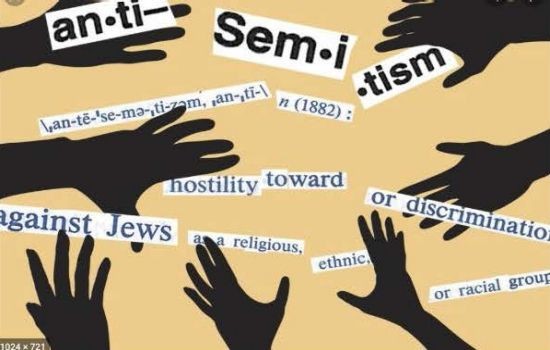Prof. Sam Lehman-Wilzig – Fearing Anti-Semitism is Counter-Productive
As this essay will raise the hackles of many Diaspora Jews, let it be said at the outset: anti-Semitism is an evil and should be fought with all legal means possible. Period.
Anti-Semitic incidents are on the rise in the West. Last week’s attack on a Boston rabbi is just the most recent event in the U.S., but such incidents have risen this past year in Europe by dozens of percentage points. There are several possible reasons for this general increase: the Covid-19 pandemic has led to general fear, not to mention economic dislocation among various sectors; sporadic Israel-Hamas “wars” spill over into anti-Semitism; some Jews are front and center in the pandemic picture (the CEO of Pfizer is Jewish; Israel has been in the forefront of vaccination success); general xenophobia e.g., white extremist nationalism, is on the rise – and anti-Semitism is part of that broader phenomenon; social media enables the most ludicrous “theories” to be disseminated widely; and so on.
However, there are two very important points to keep in mind. First, the actual (absolute) number of physical anti-Semitic attacks is almost vanishingly low. For instance, over the last decade, on average 26 people died each year from lightning strikes in the United States. According to the Anti-Defamation League’s data, in 2020 there were 5 deaths as a result of anti-Semitic attacks in America, and it seems that no year in the past decade came close to twenty-six. One could compare such anti-Semitic fatality numbers to other extremely rare deaths (for instance, more than 400 accidental electrocution fatalities every year!), but the point is clear: the chance of being killed by an anti-Semite is vanishingly low. (The annual reports of the Moshe Kantor Database for the Study of Contemporary Antisemitism and Racism at Tel Aviv University provide a comprehensive picture.)
Thus, a central problem of anti-Semitism is the fear that it creates among Jews, sometimes significantly hampering their physical activity and certainly their mental health. Of course, given the Holocaust and the rest of previous Jewish history (pogroms, expulsions, Inquisition and so on), this is understandable. However, “understandable” does not equal “justified”, and certainly not “useful”. The Jewish community at large – especially in democracies as the U.S., Great Britain, and yes even Germany – has to realistically ask itself: are we even close to such situations these days, especially given that the governing authorities are almost universally and wholeheartedly fighting anti-Semitism in their countries? In the Jewish past, most serious anti-Semitism was initiated by officialdom; we are in exactly the opposite situation today.
The second point also deals with psychology – but from the other side. Jewish fear of anti-Semitism, a fear egged on by the media (Jewish and general), is precisely what the anti-Semites are looking for! Let’s be honest: the vast majority of real anti-Semites don’t have the gumption to do anything serious about their hate, other than sound off within social media and the like. For them, the fact that they receive widespread media coverage is all the “satisfaction” that they seek and need. Thus, at the least – especially when reporting the few more serious anti-Semitic crimes – the best policy would be to report on the incident but without mentioning the name of the individual (temporary “fame”) and certainly not that person’s “reason” for what was done. Let the ADL and other reputable institutions fighting anti-Semitism collate the numbers (and reasons) – but merely present them through gross (anonymous) data.
Moreover, fear begets more fearmongering; courage (or a blasé reaction) dampens anti-Semitic fervor. If someone calls in a bomb threat to a local synagogue or JCC, the police should certainly be apprised, but under no condition should any Jewish activity be stopped because of such a “threat”. Those who wish to do real harm almost never give advance warning of an attack – certainly not directly to the intended victims. In that respect, world Jewry would do well to take a page out of the Israeli playbook. Terrorist attacks there are far more frequent, but life goes on as if this scourge did not exist.
In short, it behooves American and European Jewry to recall FDR’s famous quote: “The only thing we have to fear is fear itself.” Yes, we are currently in a xenophobic “depression,” but it hardly justifies the public fright that it is currently engendering. Indeed, less fright might even lead to fewer such anti-Semitic incidents.
Prof. Sam Lehman-Wilzig (PhD in Government, 1976; Harvard U) taught at Bar-Ilan University (1977-2017), serving as: Head of the Journalism Division (1991-1996); Political Studies Department Chairman (2004-2007); and School of Communication Chairman (2014-2016). He was also Chair of the Israel Political Science Association (1997-1999). He has published three books and 60 scholarly articles on Israeli Politics; New Media & Journalism; Political Communication; the Jewish Political Tradition; the Information Society.










